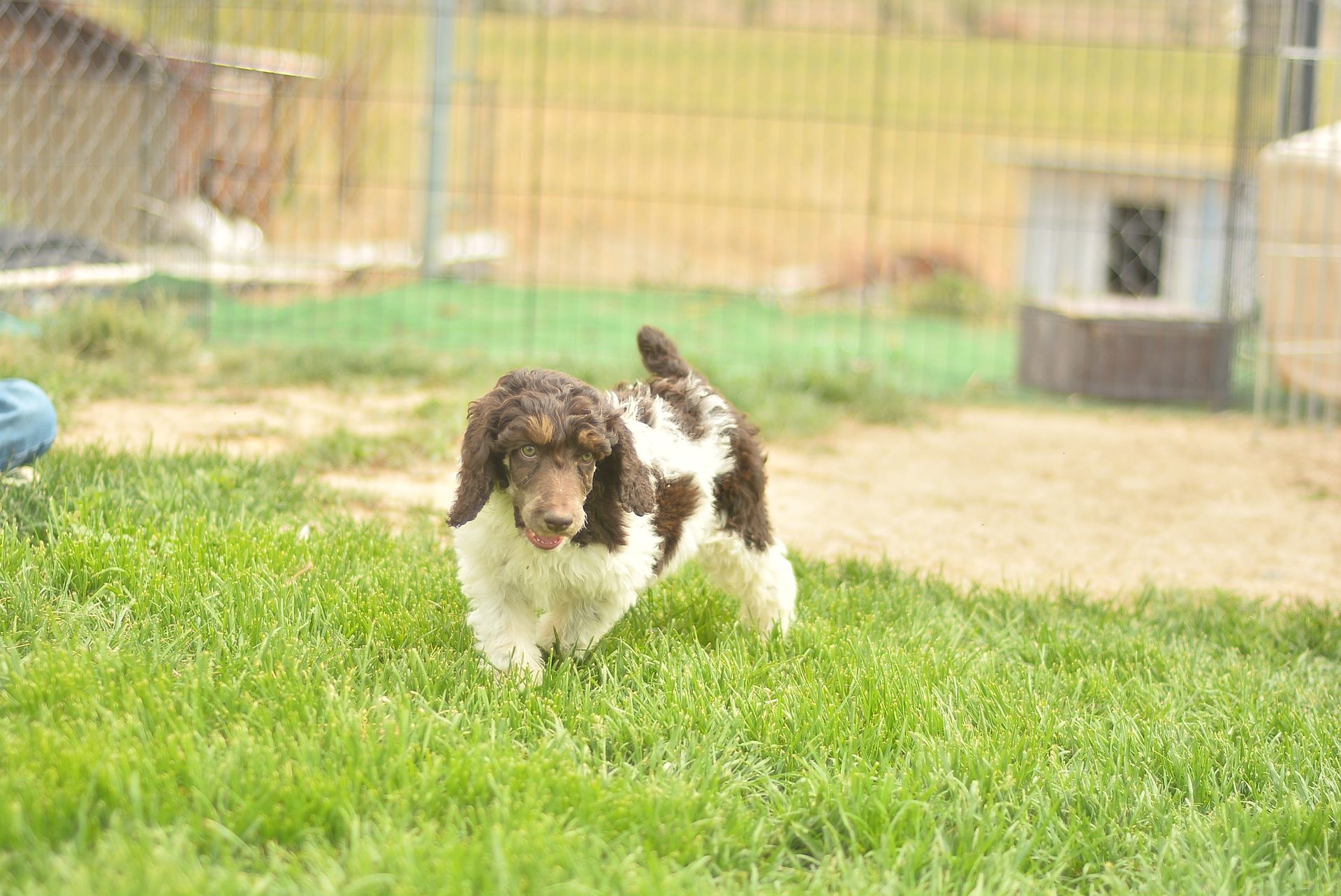Article
Why Weaning Puppies at 5–6 Weeks Encourages Healthier, More Independent Companions
At PTK Ranch, one of our highest priorities is raising puppies with steady temperaments and well-rounded social skills. Every step of early puppy development plays a crucial role in shaping a dog's future, and one of the most misunderstood yet important stages is the weaning process. While many breeders and pet owners traditionally wait until 7 to 8 weeks to fully wean, there’s growing evidence and practical experience showing that thoughtful, gradual weaning between 4.5 and 6 weeks of age offers significant behavioral and developmental advantages — both for the puppies and their mothers.

The Problem with Delayed Weaning: Correction and Aggression Risks
As puppies grow, their natural curiosity and developing teeth lead them to nurse more aggressively and test boundaries. By 5 weeks, most mothers have reached a point where nursing becomes physically uncomfortable and emotionally taxing. Left together too long, dams often begin correcting their puppies more firmly, sometimes through growls, snaps, or physical pushbacks.
While these corrections are instinctive, they can inadvertently teach puppies fear-based responses or encourage defensive behavior patterns, especially when puppies aren’t developmentally equipped to interpret those signals properly. A study published in the Journal of Veterinary Behavior (2011) by Pierantoni et al. found that puppies weaned later than 8 weeks and who remained with their mothers for extended periods showed higher rates of anxiety and possessive aggression in adulthood compared to those weaned slightly earlier under managed, supportive conditions.
Early Weaning at PTK Ranch: A Balanced, Gradual Process
At PTK Ranch, we begin introducing our puppies to soft, solid foods starting at 3 weeks of age. This allows them to become familiar with new textures and tastes in a safe, supervised setting while still having full access to their mother.
We start a slow, gentle weaning process around 4.5 weeks, monitoring both the mother and puppies carefully. On average, our litters are completely weaned no later than 5.5 to 6 weeks of age. This gradual approach helps foster early independence while ensuring that both the dam and her puppies remain physically and emotionally healthy throughout the transition.
Introducing solid foods early not only supports gut health and physical development but also ensures that by the time our puppies go to their new homes, they’re well-adjusted to eating independently. This significantly reduces stress associated with dietary changes and minimizes the number of environmental adjustments a puppy must face during rehoming.
A separate study published in Applied Animal Behaviour Science (2015) by Gazzano et al. confirmed that puppies who were introduced to independent feeding and gentle social separation practices before 7 weeks demonstrated better coping mechanisms in new environments and fewer signs of separation anxiety.
Thoughtful Weaning: It’s About Balance, Not Rushing
It’s important to clarify that early weaning doesn’t mean premature separation or neglect. At PTK Ranch, our puppies continue to live with their littermates and remain in close, interactive human care. We carefully monitor both the dam and her puppies, ensuring the transition is gentle, appropriate, and tailored to each litter’s temperament and readiness.
The goal is to give puppies the best start possible: one that includes early socialization, exposure to new experiences, gradual independence, and a stress-minimized transition to their forever homes.
Conclusion
While every breeder must choose practices that best fit their program and breed, research and hands-on experience increasingly support the benefits of a managed weaning process between 4.5 and 6 weeks. By doing so, breeders can reduce unwanted aggressive corrections from mothers, foster independence in puppies, and create smoother transitions for families welcoming new canine companions.
At PTK Ranch, our commitment to the health and emotional well-being of our puppies drives every decision we make — from breeding pairs to early handling protocols and thoughtful weaning practices. It’s one of the many ways we strive to raise predictable, happy, and confident dogs for families like yours.
References:
- Pierantoni, L., Albertini, M., & Pirrone, F. (2011). Prevalence of owner‐reported behaviours in dogs separated from the litter at two different ages. Journal of Veterinary Behavior, 6(1), 46–51. https://doi.org/10.1016/j.jveb.2010.07.003
- Gazzano, A., et al. (2015). Effects of early separation from the mother on puppies' behavioral development. Applied Animal Behaviour Science, 162, 44–51. https://doi.org/10.1016/j.applanim.2014.11.011
